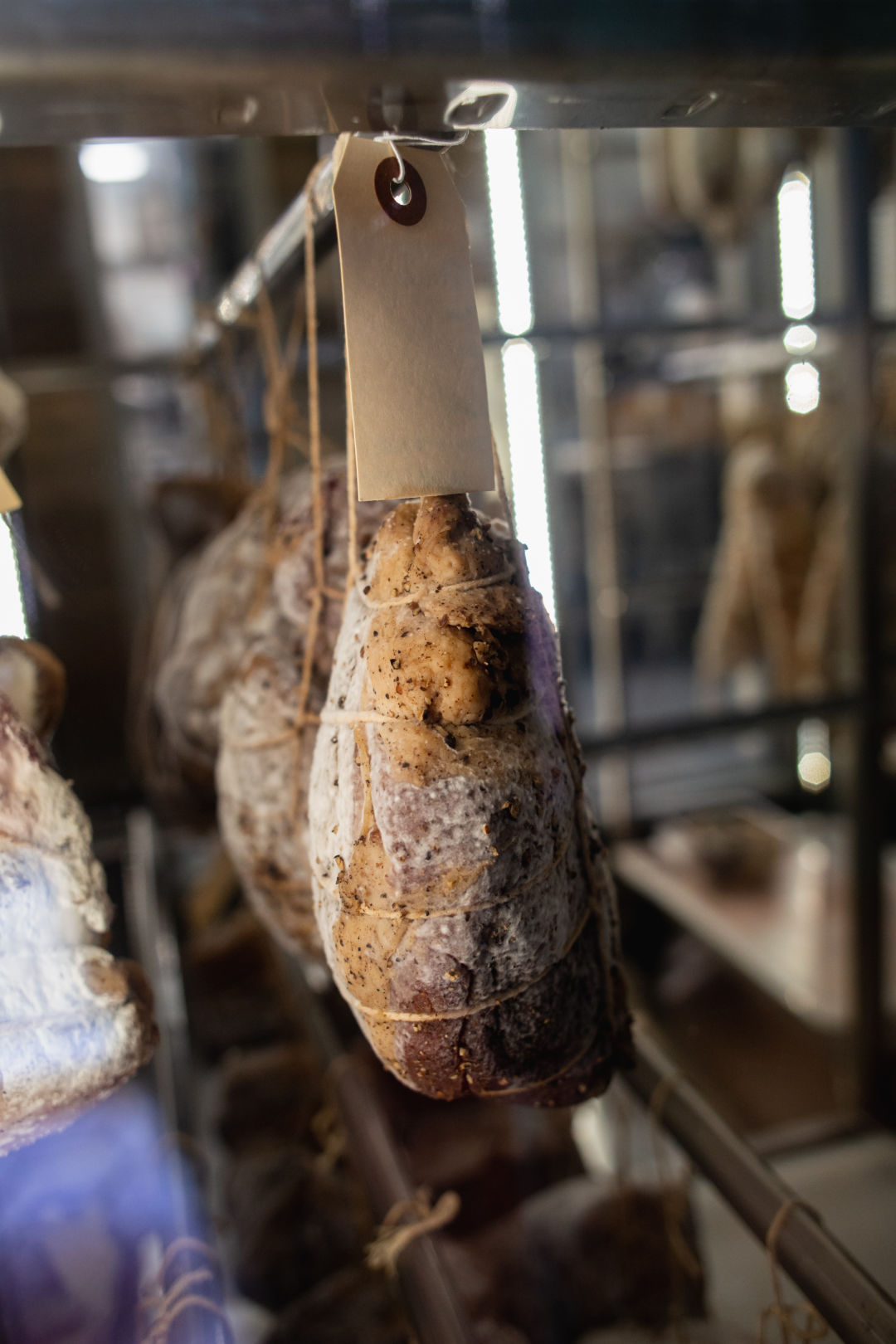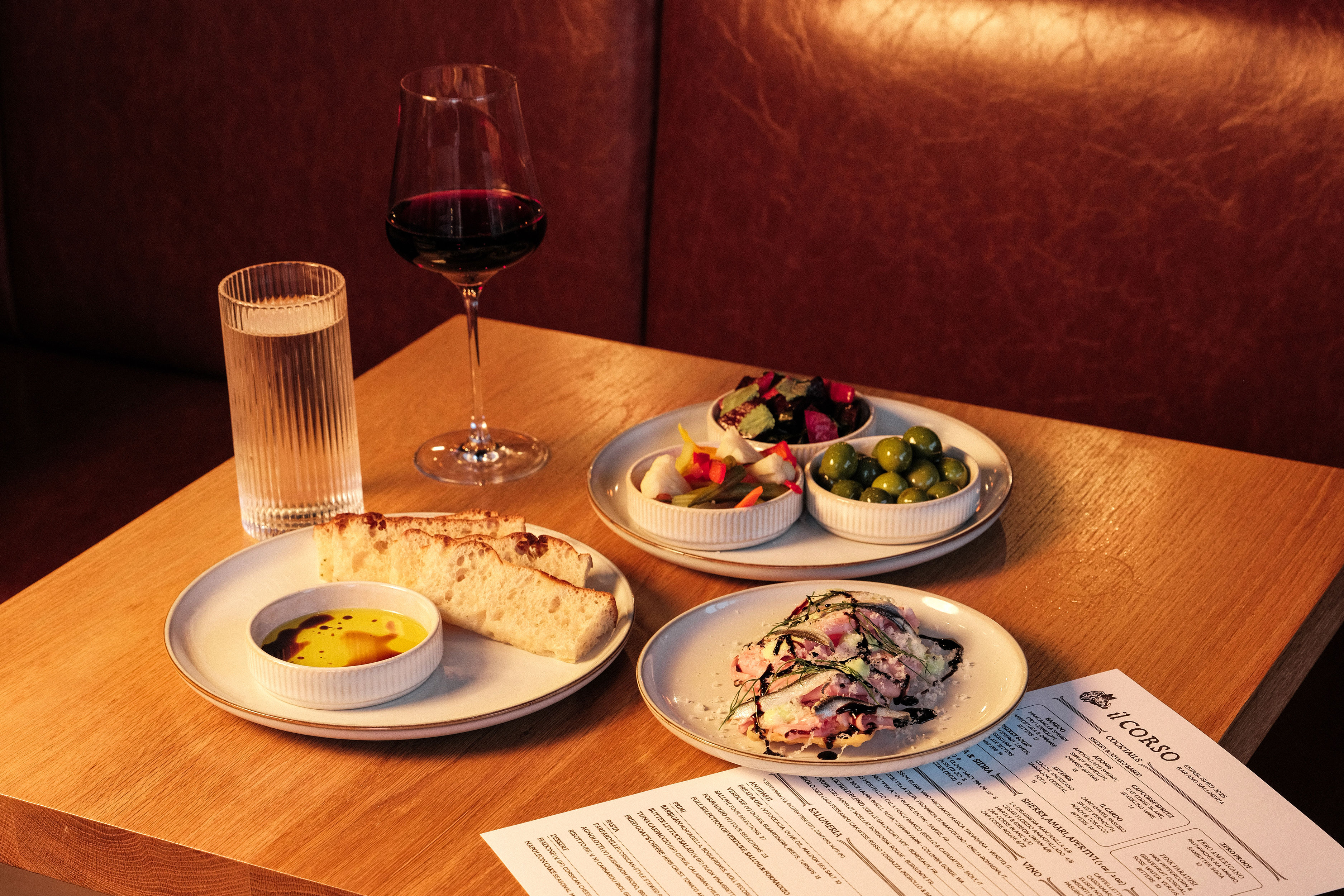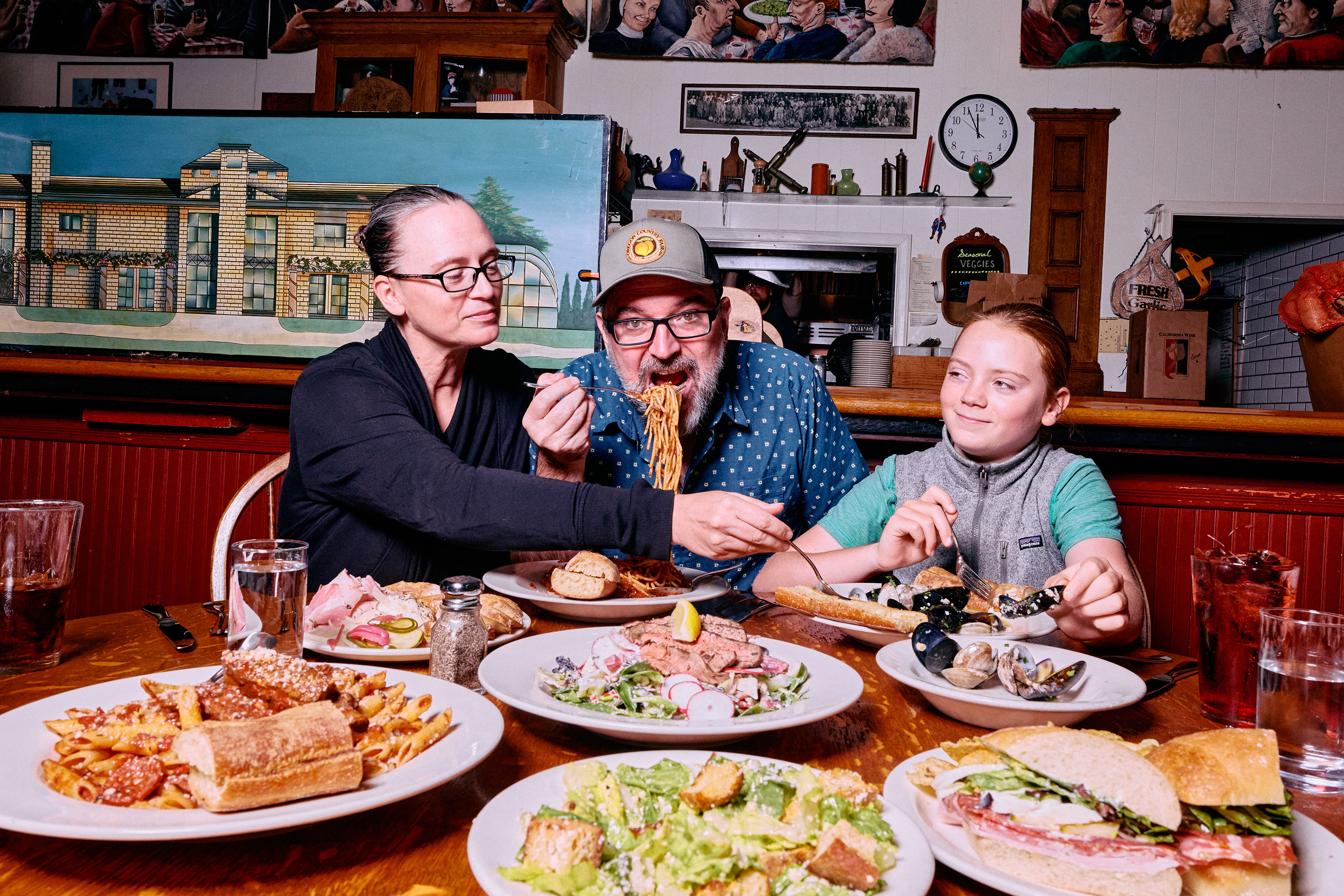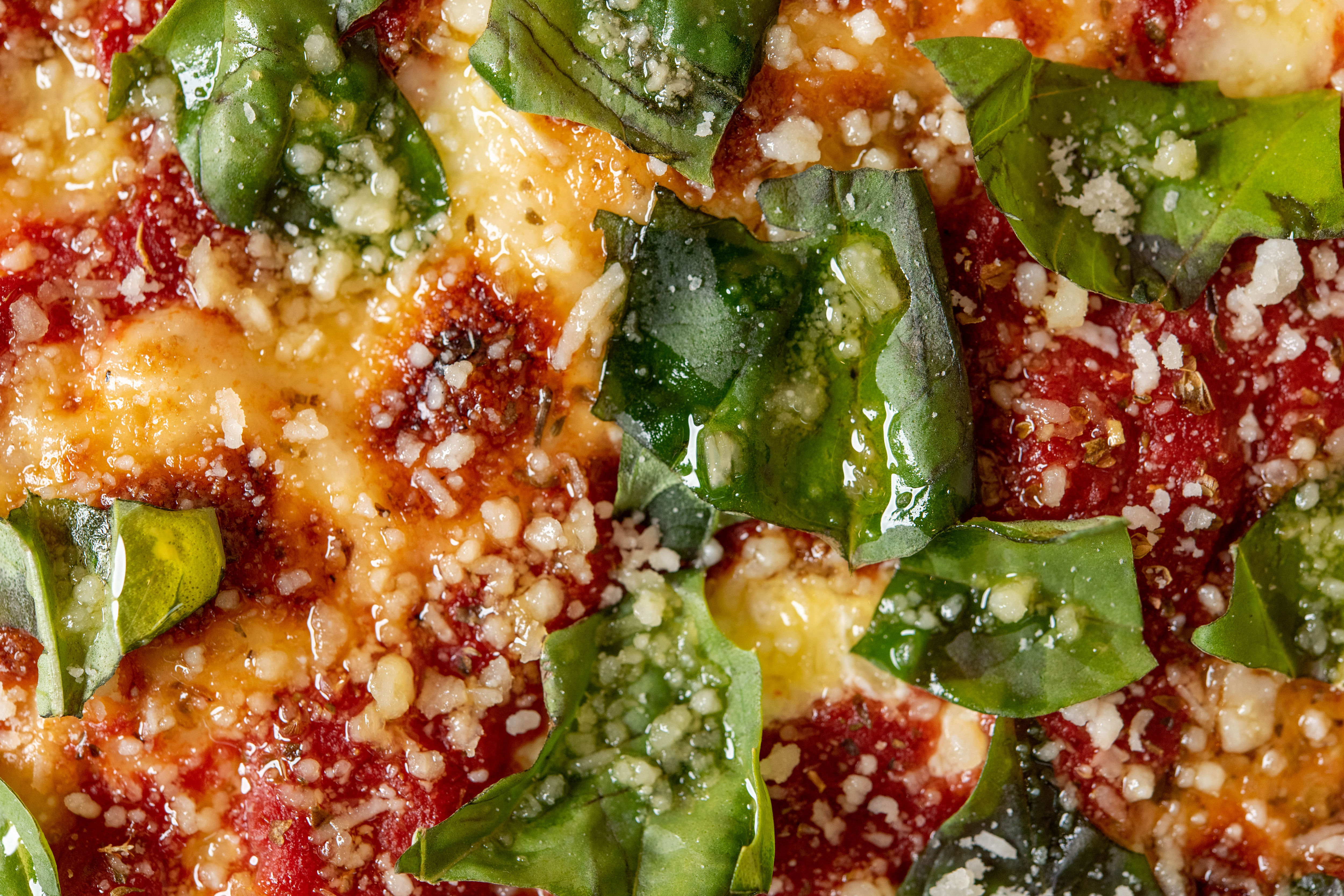Piccone’s Corner Debuts House-Made Farm-to-Ferment Salumi

A glimpse into the salumi chamber at Piccone's Corner
At Piccone’s Corner, a green hanging file, the kind you’d usually expect to hold tax records, is instead labeled “finocchiona.” The packets inside look like high school chemistry lab experiments: add this many grams of pork shoulder and loin, this many grams of fennel seeds and pollen, and this much lactic acid, down to the hundredth of a gram. Ferment the meat for this many hours at this temperature. Check the pH. Multiply this and that number together. Send a sample to the lab to ensure there are no bacterial contaminants. The end result: a 22.6-pound batch of fennel-flavored salame.
Piccone’s Corner (3434 NE Sandy Blvd #400), a combination butcher shop and restaurant open since 2021, is already unusual for being one of the few butcher shops in the country that also raises its own pork, out on a small farm in Sandy. On May 1, Piccone’s continues to set itself apart with the debut of its first Italian-style salumi products, including finocchiona and melt-in-your-mouth lardo. Additional varieties are coming soon, including fiocco and lonza, two whole-muscle varieties that have a texture and flavor similar to prosciutto, and piemontese, a Northern-style salame with warm spices like nutmeg and cloves. Coppa, spicy coppa, culatello, pancetta, guanciale, bresaola, ‘nduja, dried pepperoni, and salame toscano are also in the works.
It’s unusual for a butcher shop, farmer, or restaurant to make its own charcuterie. While you could get great finocchiona or lardo on a restaurant charcuterie plate or at any upmarket deli counter like Providore or Zupan’s, it’s going to be made by a wholesale producer, whether that’s a smaller artisan salumeria like Portland-based Olympia Provisions or Seattle-based Coro, or a bigger company like San Francisco’s Columbus, which you can even buy pre-sliced at Trader Joe’s or Fred Meyer. (One happy exception is pioneering Portland farm-to-table restaurant Higgins, which makes its salumi in-house.) None of these producers are raising the meat they use in their products themselves. In fact, Piccone's is the only place in Oregon that both farms and makes its own salumi.
So why isn’t everyone making their own salumi? Facilities making salumi have to be inspected by the Oregon Department of Agriculture, a pricey and time-consuming process that’s been in the works at Piccone’s Corner for several years. An additional license from the US Department of Agriculture is required to sell salumi wholesale, which Piccone’s Corner does not yet have but is in the process of obtaining. Inspection is important because salame is cured rather than cooked, which means there’s a lot of potential for things to go wrong. Every element has to be controlled down to the iota: temperature, humidity, and the volume of various ingredients, including the lactic acid culture that’s used to start the fermentation of ground meat, and the penicillin that’s used to stop the fermentation and grow the whitish mold seen on salame casings.
When you walk into Piccone’s Corner, you’re greeted by a window looking straight into the salumi cabinet, a futuristic metal-and-glass chamber imported from Italy. Inside, salumi of various shapes and sizes hang from knotted twine nets, where they’ll cure in a temperature and humidity-controlled environment anywhere from 45 days for the finocchiona to 18 months for a large culatello (pork haunch). I got to step inside the salumi cabinet, which smelled something somewhere between truffles, day-old socks, and bacon. To the left is the butcher counter, which holds fresh pork chops, sausages, and now a selection of salumi. It’s a powerful display of all the things you can do with pork.
But after undergoing all that fermentation and adding tons of salt, does the source of the pork make a big difference in taste? According to Piccone’s owner and farmer Austin Piccone, it’s more important than you might think. The pigs, crosses of heritage breeds like Berkshire and Red Wattle, are raised on a farm with access to pastures that they regularly rotate through in order to regenerate the soil and provide the pigs with a varied, omnivorous diet. They’re slaughtered when they reach around 300 pounds.
“The pigs being able to move around and access the pasture has an impact—it kind of changes the nature of the fat. It’s a lot mellower,” he says. “Plus, pigs that are stressed out will have less muscle glycogen, and that affects the fermentation, too, because there’s less sugar in the muscle to ferment.”
Ultimately, Piccone’s aim is to create a farm that’s a “closed-loop system,” doing everything pork-related except the actual slaughter of the pigs, which is required to take place at a USDA-licensed facility. With salumi now on the roster, it's available for purchase at the deli counter as well as on charcuterie plates at the restaurant, sided by seeded bread, mustard, and giardinera.




